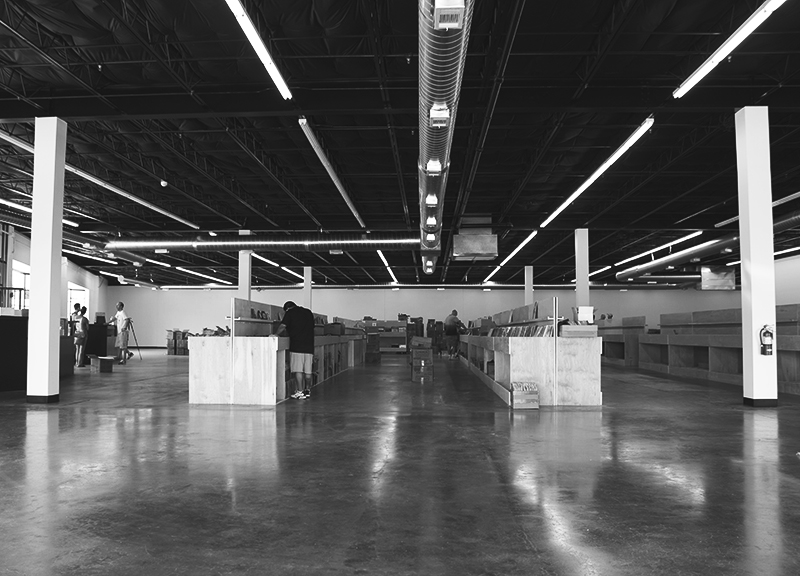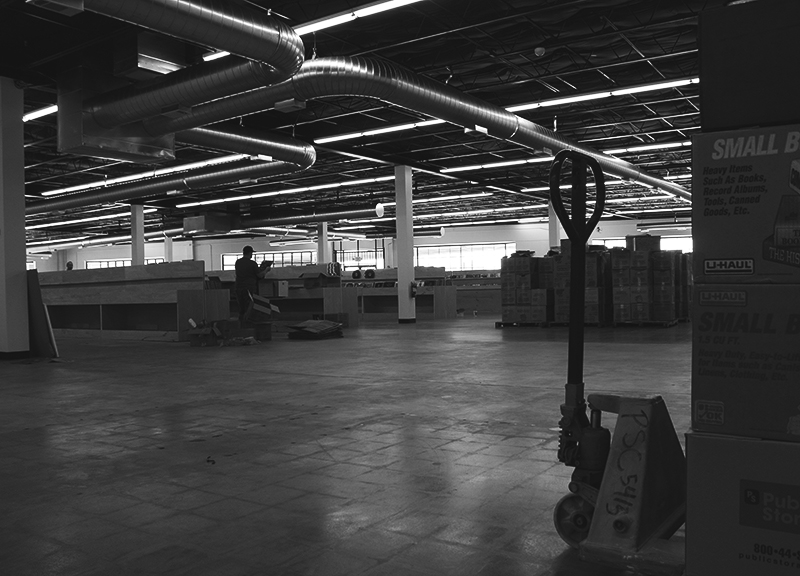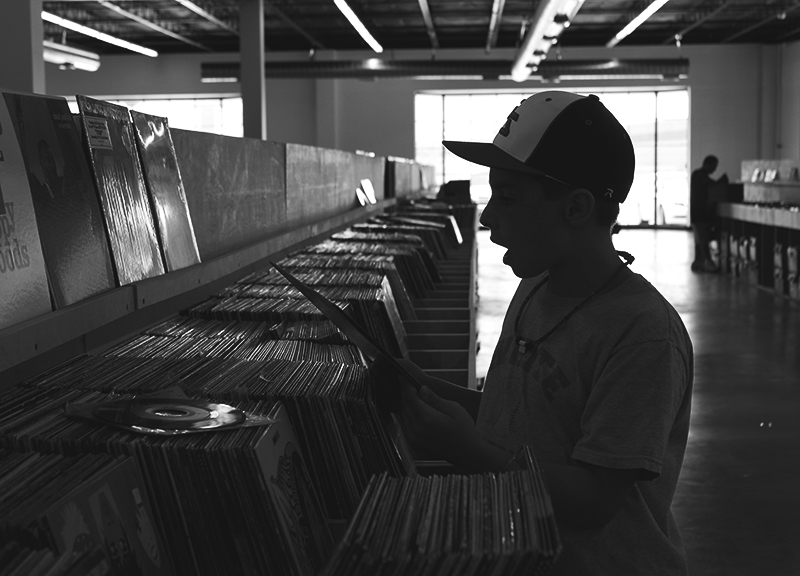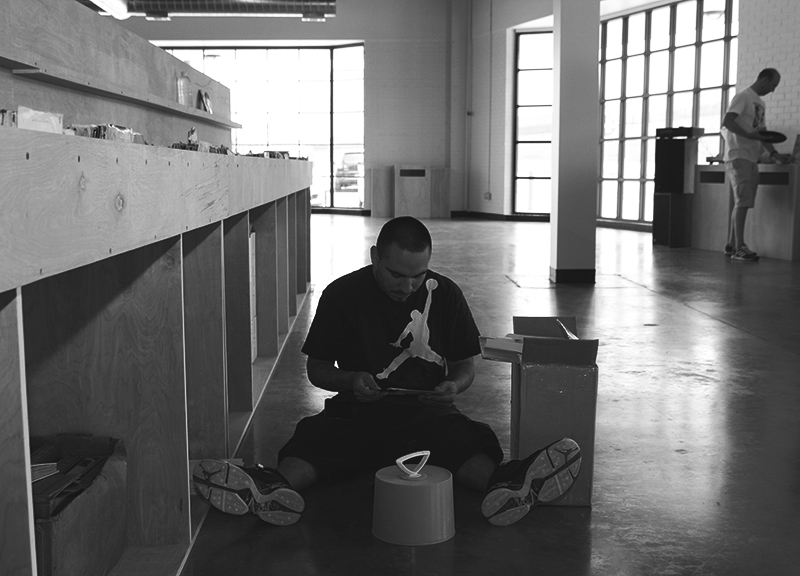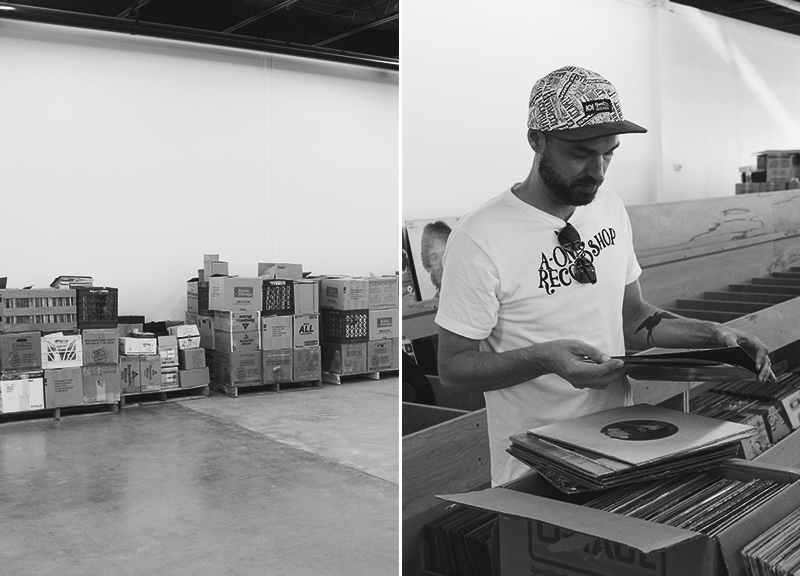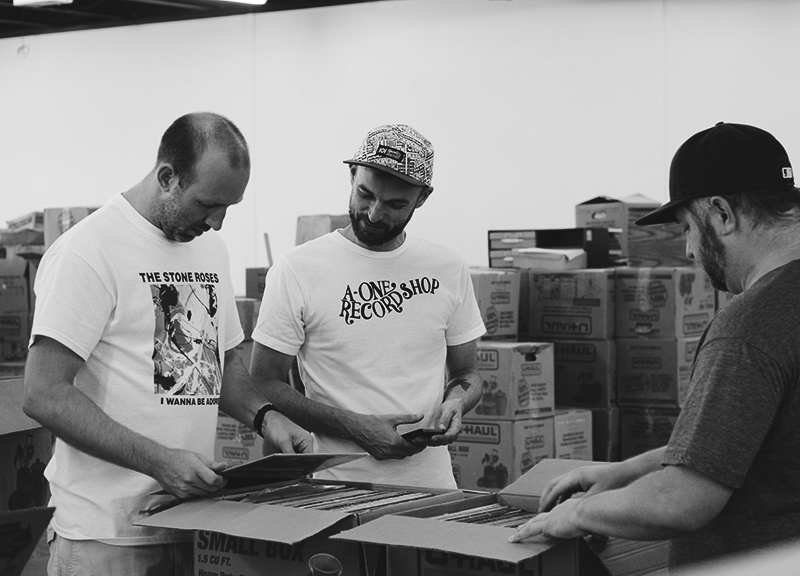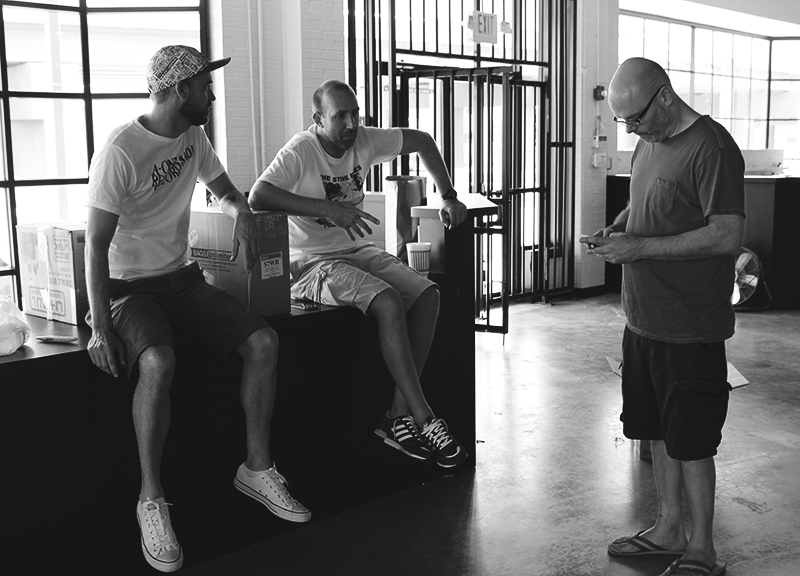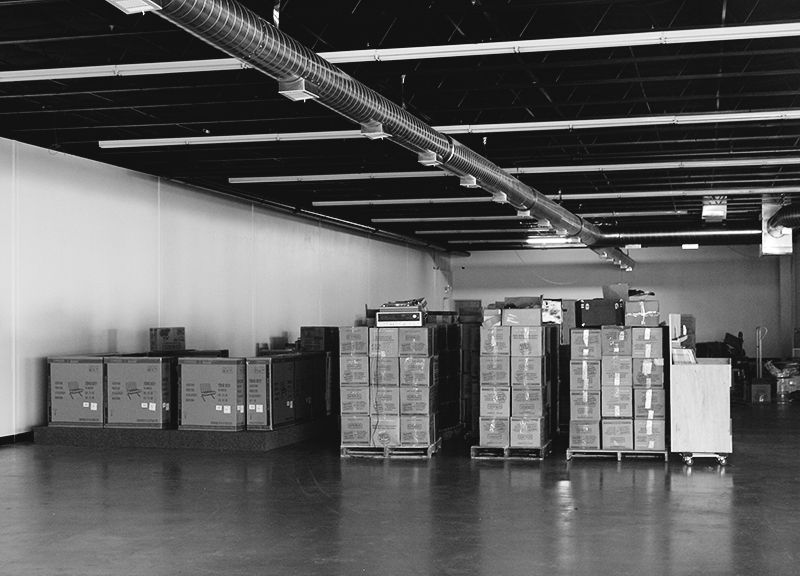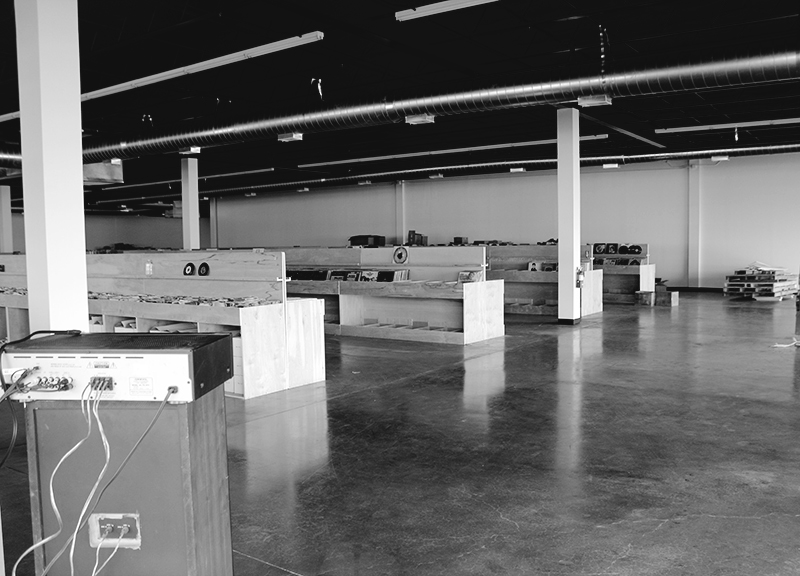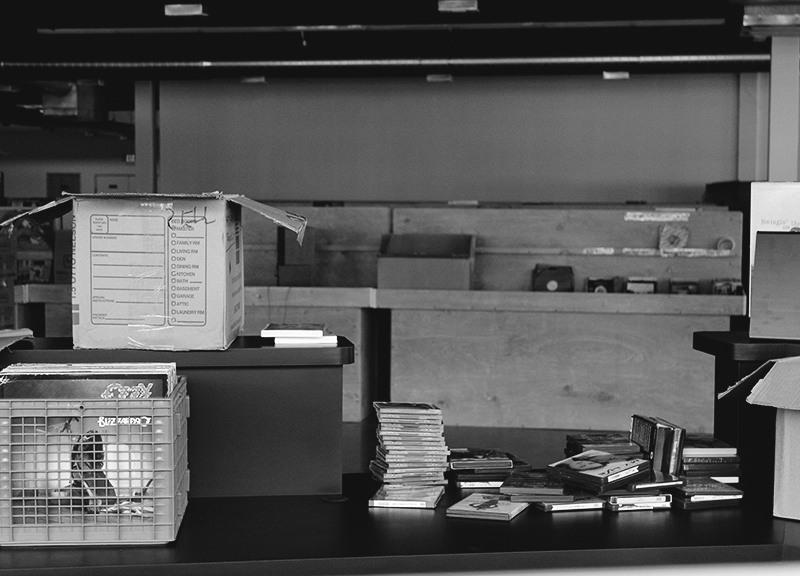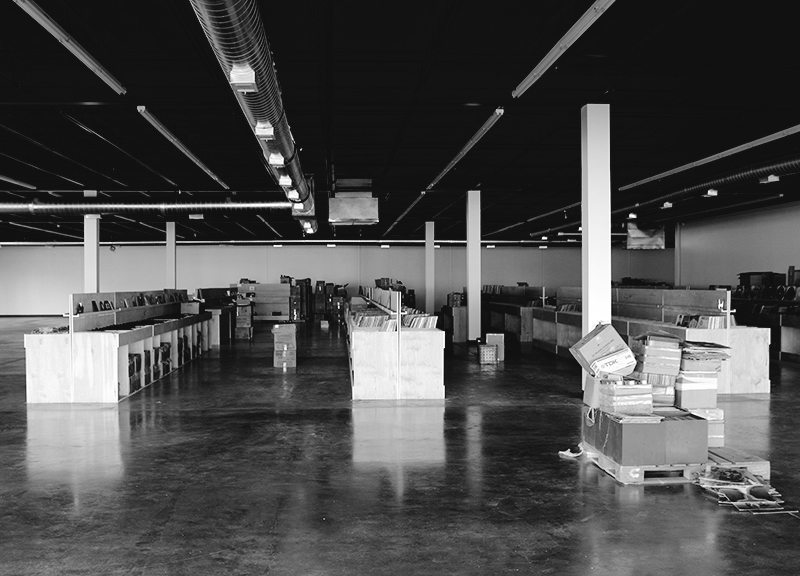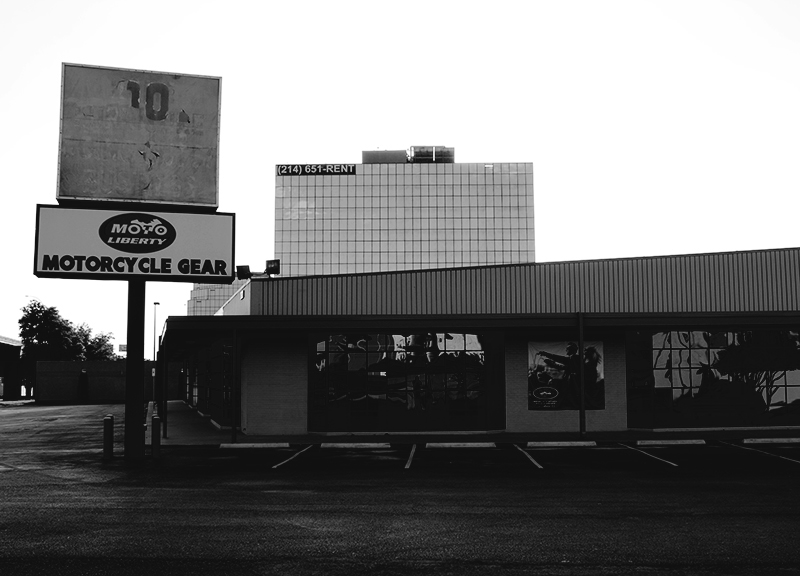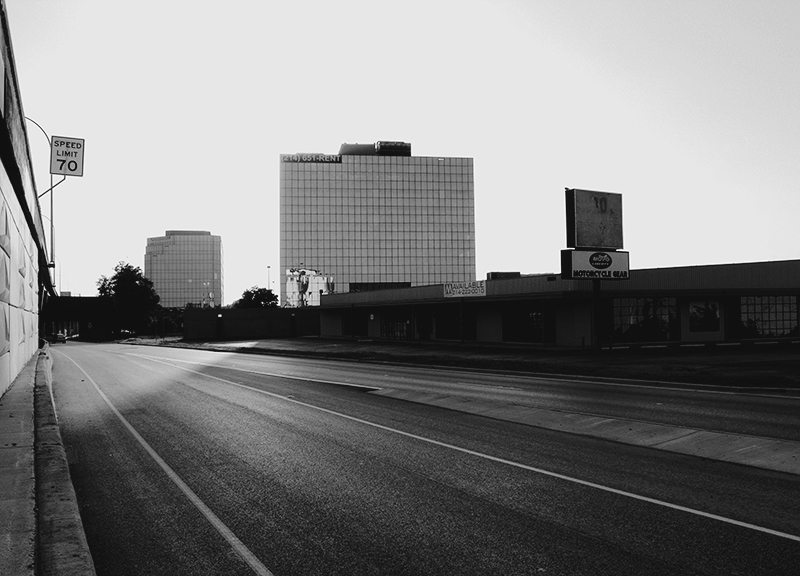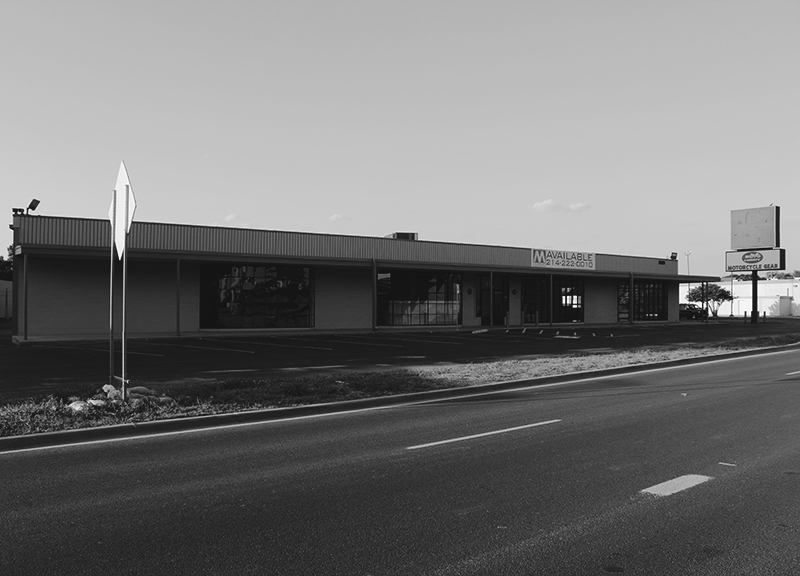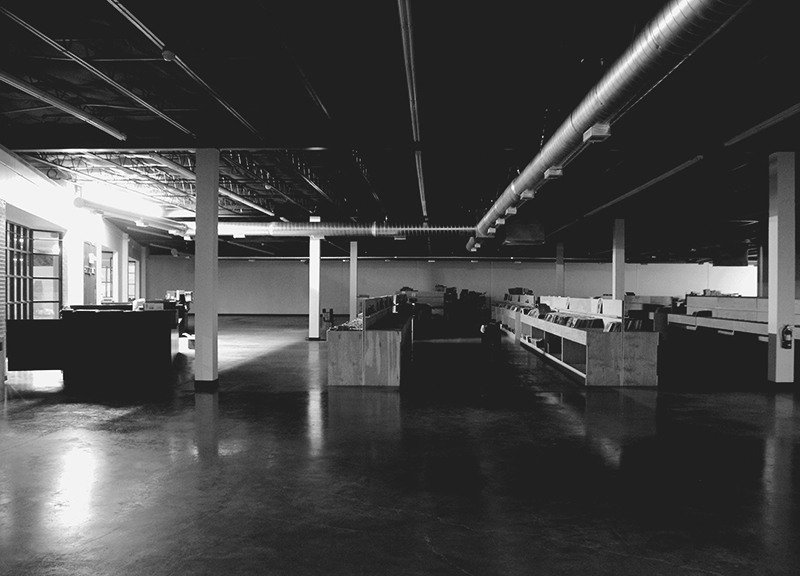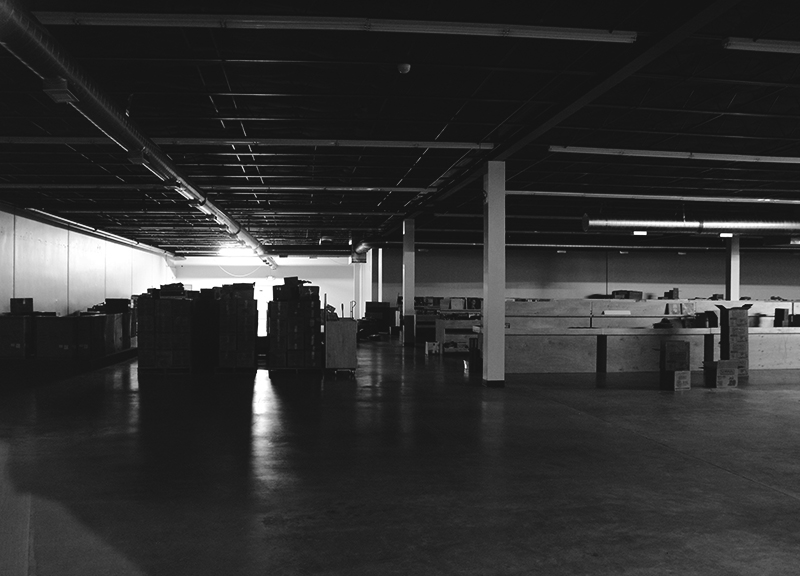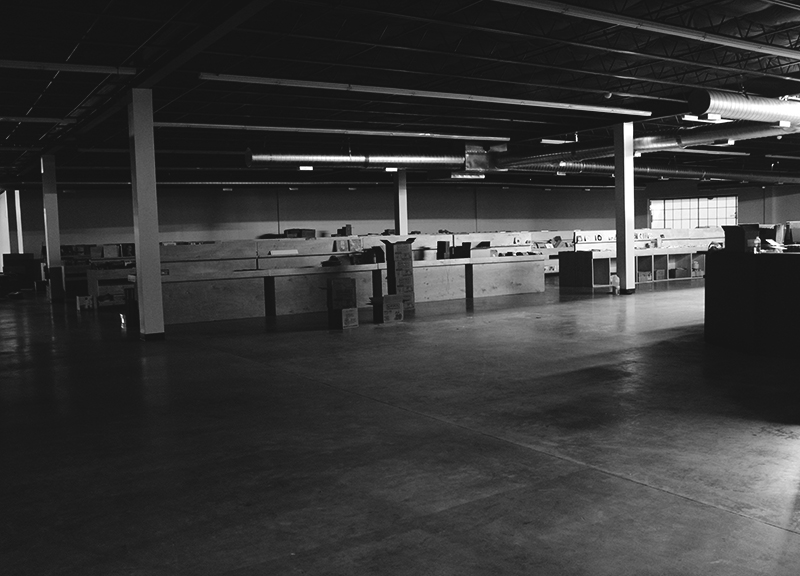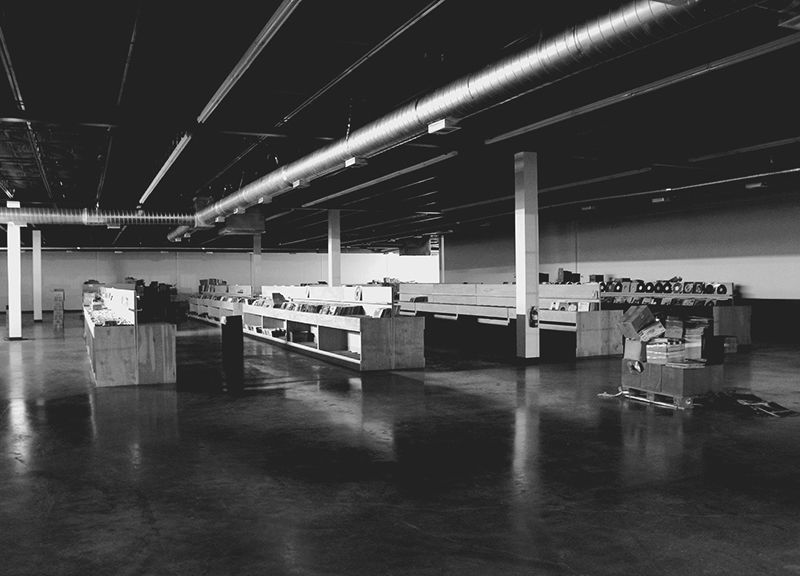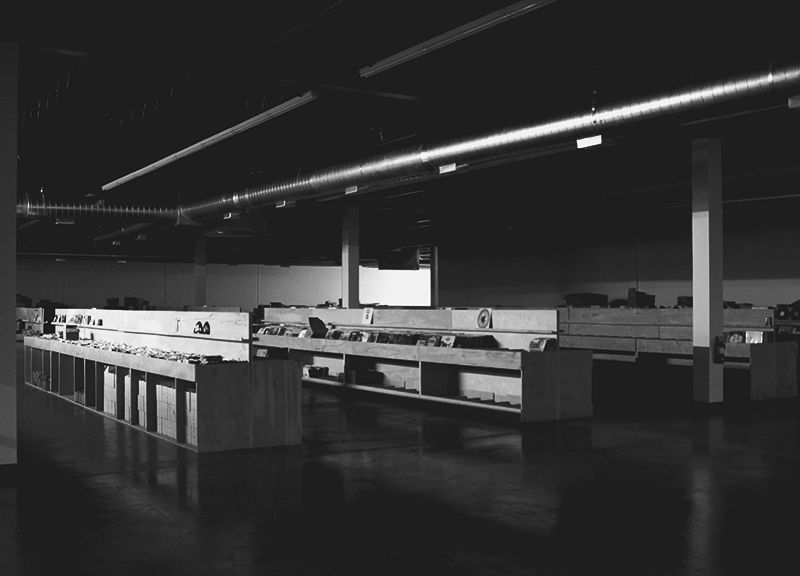Dallas’ Next New Record Store Is Big: The 15,500-Square-Foot Josey Records Is Coming Soon.
At the moment, it mostly looks the part of an empty warehouse. But, in the coming months, the storefront at 2821 Lyndon B. Johnson Freeway will morph into Josey Records — a 15,500-square-foot mecca for music lovers and collectors of all kinds.
Or, in other words, it’ll be the complete antithesis of Deep Ellum’s new record store bar, Off The Record.
Rather, the fervent collectors, record store rats and respected DJs behind the shop — Waric Cameron, JT Donaldson and Luke Sardello, plus a fourth silent partner — are aiming to turn Josey Records very much into the real deal.
Inside an unmentionable amount of filled crates boxes and curtains filling the store’s floorspace, some 100,000 45s, 78s, tapes and, yes, even eight-tracks are in the process of being inventoried so they can be set up for display. Also set to be among Josey Records’ stock are DVDs, pieces of music memorabilia, turntables and artworks that will hang as part of a gallery the store additionally plans to set up within its massive space. On top of that, the store is also set to feature several bona fide listening stations so customers can listen and interact with the music, plus a lounge area and two separate stages for hosting in-store live band and DJ sets alike.
The store is still a ways off — it’s set to host a soft opening in October and plans on being in full swing come Record Store Day weekend in April of next year — but the owners were kind enough to take a break from stocking this week to let us into their space, answer some questions and give us a peek into what’s to come.
What brought about the idea of opening a record store of this magnitude here in Dallas?
Luke Sardello: I’ve wanted to do it since… I can’t even remember. I’ve been wanting to do it for a long time. Me and two other guys, when we left Bills [Records and Tapes of Dallas, we opened a dance store and it didn’t work. Ever since then, I wanted to do it again. I guess it’s just a natural extension of being a record collector.
How long have you been collecting records?
LS: 25 or 26 years. Since my junior year of high school.
Is there anything particular over the years that you’ve collected that you enjoy more than others? Or is it just the love of chasing records that keeps you going on?
LS: You do this your whole life, and you’ll never see it all. There’s always something out there that you didn’t know about. I think that the search started for me with house music and disco stuff because all those dudes were sampling disco records and I wanted to know what they were. So I started buying a lot of disco stuff and from there it was like a direct line into old soul and jazz. A lot of that trend back to hip-hop too thanks to all the stuff they sampled. I’d say I like disco and soul more than other genres, but I’m into everything. It’s like a never-ending quest to find or listen to stuff you’ve never heard before.
What’s the rarest thing you’ve found during your adventures in the land of music?
LS: One of the most rare — or at least interesting — things I’ve found was at a shop in Danville, Virginia, about five years ago. I found this album done by this band during a battle of the bands deal in Southern Virginia. The group that won was a high school band that did really raw soul covers — Bill Withers and a few others. I think that maybe 100 or 200 copies were ever pressed of it initially. The album has since been pressed out again by Stones Throw. And I came across one that day. It’s a great album.
What’s the defining moment when you get a gem like that?
LS: I don’t know. It’s kind of like putting a puzzle together except that this one is endless. Out of a million pieces, it’s just finding another one of those pieces and seeing where it fits in it all. It’s a good feeling.
There are a number of places in North Texas opening up thanks to the resurgence of vinyl in current culture. What is it that you are going to try to offer that is different from the rest here at Josey Records?
LS: Selection is going to be one of the big things. You can tell by us trying to unpack all this stuff! We’re trying to represent every genre. We’re not opening up a boutique shop so that 20 of our closest friends can come in and shop only. It’s going to be something representative of a lot of faces out there. There will also be a cultural aspect to it all.
JT Donaldson: There will be an art gallery, a lounge, events, webcasts, DJ mixes in store. We’re going to make it a place where people want to hang out. All the record stores I’ve been in seem to be places where you have to kinda know what you want – and then you’ve found it and left.
LS: We want it to be a place where you can hear and see something you didn’t know about and then find out more about it. Maybe even make a day out of it.
JD: The experience of acquiring and shopping for records is something that we want to put a lot of emphasis on.
LS: It’s a thing that seems to have been lost in the digital era. I think it was underestimated how much the cultural side of it was taken away when dance record music shops closed. You could tell that there was a big change — at least in the U.S. The connections that people built in the record stores translated into parties and then into people going out. It was just more about building a community. You can’t do that if everyone is sitting at home downloading files.
Since you guys have been a part of the music culture for so long, you’ve seen Dallas ebb and flow a number of times, I’m sure. Places like Intergalactic Groove Source, Oak Lawn Records, All Time Party Time, Spinmasters, and even the legendary Bill’s have either gone through some hard times or are just gone altogether. You guys are looking to bridge that gap between the old and new listener it seems.
LS: Absolutely! There’s a definite interest in that 20- to later-30-year-old group. I think people are figuring out a couple of things. A lot of folks only grew up with CDs, so this is new to them. A lot of the other part of that is that folks are figuring out what else comes with the physical aspect of holding a record – the artwork, the liner notes and the different sound quality.”
Not to mention discovering the tactile feel of an item versus knowing to play a song you like at just the specific part of a song you like.
LS: Yeah. It’s just part of the experience. Everything that went into the making of the record is part of the listening experience. Seeing the artwork, seeing the labels to learn other things about the band or what other artists were label mates — all of it adds another element to the appreciation of it, I think.
Are the records that are being used for this store all from your own private stock or from other sources?
LS: “I’m bringing in about 10,000 of my own – but none of the stuff here is currently mine. A lot of the stuff here came from a buy in Houston from a guy that used to sell in a flea market. He passed away. I don’t know how he acquired most of it, actually, but he had a home full of stuff. He had stopped selling in the 1980s and the stuff was just sitting in a house. When I went to get them, there were two houses filled with records. Nobody even lived in em. They were just filled with records and the daughter lived across the street.
How many records there were?
LS: 100,000? Something like that, I’d wager. That’s including all the 45s that came with it all. The other lot of stuff here against the wall is from Oklahoma. That was a buy that a buddy set up for me. That was more of a collector dude. It’s all interesting stuff.
JD: We even got some darts in the deal. [Laughs.]
LS: Now, to match the feeling of things, we’re also starting a consignment program. We’re going to have space up here for people who want to sell items to do so.
You’re selling other stuff too, right?
LS: That’s correct. We are selling tons of items that revolve around music and musical culture. Music-related books and magazines, DVDs and memorabilia will be available as well.
I know you’ve DJed and recorded alike, Waric. What’s your involvement here?
Waric Cameron: I started off in a record store just like most people who are still in the record business. Music has kinda taken me on a journey and this is — well, where I’ve arrived. Music always seems related to the way of the world.
Where do your musical tastes lie?
WC: As long as it’s good music, it’s good music. I got my start off with the whole Madchester movement in the late ’80s and early ’90s. Y’know, Happy Mondays, Stone Roses, Charlatans, etc. That kind of stuff in turn ended up leading me to house music, which in turn led me to the samples like Luke was saying. Just when you think you know everything, something new comes up. There’s so many subgenres of genres out there now that never existed before that intrigue me now.
Now, JT, you’re also well-known around town as a DJ. What’s your involvement with all of this?
JT: I’ve always worked up at record shops. I worked up at Bill’s when I was in the 11th grade and used to get out of school early through a work-release program. I spent a lot of my youth either hanging at a record shop or actually working there. I moved out to L.A. and got a chance to work with Lance DeSardi at a shop off of Melrose. Waric worked at a place called Higher Source out that way as well. We’ve all been embedded enough so that, as we’ve grown older, we’re seeing a way to capture the strength of our pooled experience and try to see what we can do. This project came together a lot faster than we initially thought. When the opportunity presented itself we said, “If we’re gonna do it, let’s do it now.”
The time truly is now. Culturally, Dallas is waking up to a lot of what we’ve had here forever but have slept on for so long. Things like Decks In The Park help out to expand interest quite a bit.
JT: There’s a bit of responsibility that goes with being part of the community. We’re glad to see things like that grow and develop. As we’ve gotten older, connecting the dots has become a lot easier. The support system within this music community continues to grow, and we’re fortunate to be a part of that and hope to do our own part to foster greater things here locally. We’re hoping to make this as exciting for the folks that walk through the doors as it has been for us putting this thing together.
WC: And just wait till we put the giant vinyl record on the roof!
For real?
JT: You know Randy’s Donuts? Of course you do — and that’s my point. It’ll be like that.
WC: “You know Josey Records? Of course you do.” [Laughs.]
But, really, what’s the overall goal here, guys?
WC: We’re hoping that, with the size of this place, that we can become a musical multicultural center for the southwest. With all the talent that we’ve got and all the space that we’ve got, we’ve got a good shot at it.
JT: We’re looking to be a way for up-and-coming talent to get their shine on outside of a nightclub as well. Again, the sense of building a community here is what we’re about. All of this has been thought out. It’s not been an accident. This provides an opportunity for the buyer, the artist, the collector and for us all, at once.
